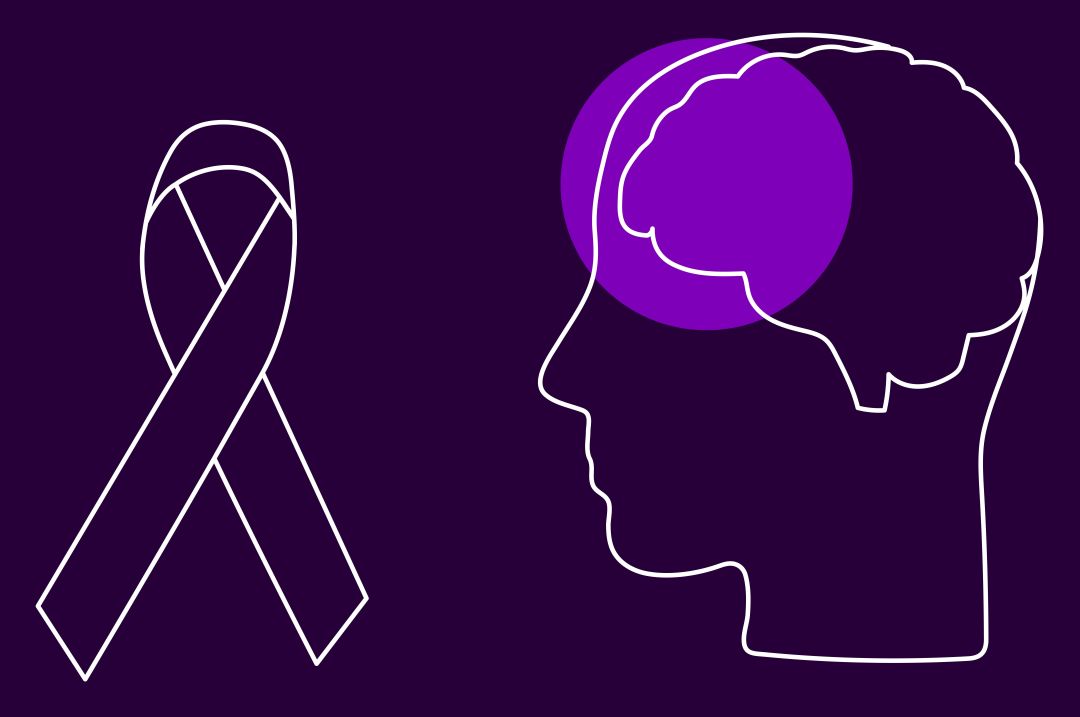What Are Some Common Myths About Alzheimer's Disease?

Image: Kari Perrin
More than 6.2 million Americans are living with Alzheimer's disease, a progressive neurological disorder that affects short- and long-term memory. November is National Alzheimer's Disease Awareness Month, and to recognize it, we are tackling some common myths about this disease, and how it affects people's daily lives.
Organizations like the Alzheimer's Foundation of America and local practices like The Roskamp Institute are looking to share the reality of living with the disease, ways you can detect it early and how you can get involved in rallying for a cure.
Here are what they say are the top five myths of living with Alzheimer's disease:
Myth one: Memory loss is always a normal part of aging.
There is a difference between occasional forgetfulness and the memory loss that occurs with Alzheimer's.
"Not being able to recall someone's name from years ago or temporarily not remembering well known information are not early features of Alzheimer's, but something that happens to us on occasion," says Dr. Mike Mullan of The Roskamp Institute. "But consistently not remembering recent phone calls or recent news events may be early signs of Alzheimer's."
While memory issues can develop in old age, and can be a result of other types of dementia, Alzheimer's is very different. Visit a physician or specialist if you or a loved one is having trouble telling the difference.
Myth two: Alzheimer's disease is progressive, but not fatal.
"Alzheimer's itself is not fatal, but people usually die from the consequences of the final stages of the disease, which include being immobile and bed-bound and therefore vulnerable to infection and other problems," says Mullan.
Alzheimer's is a progressive disease. It destroys brain cells, and can cause more than just memory loss. Patients can experience behavior changes and loss of body movement and function. Eventually, patients cannot talk, eat or walk. Many people living with Alzheimer's require constant care from a loved one, home health aid or nursing care facility.
Myth three: Alzheimer's only affects older people.
People under the age of 65 can experience Alzheimer's disease. It is called "younger onset" or "early onset" Alzheimer's and affects people from age 30 to their late 50s. More than 200,000 Americans under age 65 are living with younger onset Alzheimer's.
Myth four: There are cures for Alzheimer's.
While there are new medications on the market, like Aduhelm, that help reduce the progression of the disease by targeting amyloid cells in the brain, there is currently no treatment to cure Alzheimer's disease.
"In nearly all cases, patients benefit the most by early intervention with these new treatments, so early evaluation of any memory problems is essential for best results," says Mullan.
Myth five: Vaccinations, like the flu shot, cause Alzheimer's.
There have been studies claiming that the mercury content in vaccines (used as a preservative) is linked to the development of Alzheimer's disease and dementia. However, two studies shared at the Alzheimer's Association International Conference in 2020 showed that vaccination can reduce the risk of developing both diseases.
One study from the University of Texas went through millions of national medical records to find factors associated with a person's risk of getting certain diseases, like Alzheimer's. Out of 9,000 people over age 65, those who had received one flu shot had a 17 percent reduction in risk. And people who received regular flu shots had a risk drop of another 13 percent.
The other study, from Duke University, found people age 75 and older who received a pneumonia shot were 25 percent less likely to be diagnosed with Alzheimer's.
While scientists are not exactly sure why this benefit occurs, they tend to believe it is linked to an overall improved immune system, as a result of receiving vaccinations.
"Many other diseases can heighten the risk for Alzheimer's by contributing to inflammation in the body and in the brain, in particular," says Mullan. "Therefore, generally speaking, vaccination against flu, pneumonia and most likely Covid-19, protect the brain by reducing the risk of cerebral involvement in infection."
How can you help spread awareness about Alzheimer's?
1. Share facts. Post about Alzheimer's disease on social media, or post a photo on Facebook with a cover photo indicating that you support Alzheimer's research. Find resources for both on the Alzheimer's Foundation of America's website.
2. Join a walk. A local walk by the national Alzheimer's Association will take place at Ed Smith Stadium, 2700 12th St., Sarasota, on Saturday, Nov. 20. Register here. The Alzheimer's Foundation of America is also hosting a virtual walk until Tuesday, Nov. 30. All funds raised will go toward therapeutic programs for patients and research. Register here.
3. Get a memory screening. Early detection is one of the most important parts of reducing the effects of Alzheimer's on one's daily life. You can get a free virtual memory screening from the Alzheimer's Foundation of America between 10 a.m. and 4 p.m. on Mondays and Wednesdays and between 10 a.m. and 2 p.m. on Fridays. Schedule one here. You can also book an appointment with The Roskamp Institute for a neurological assessment by clicking here or calling (941) 256-8019.
4. Donate. Find local or national organizations to donate toward Alzheimer's research.



